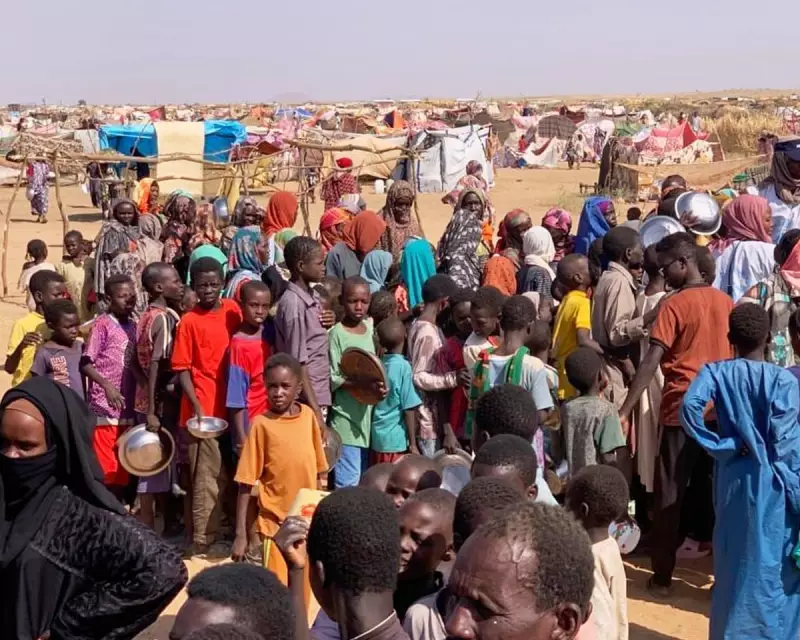
A devastating humanitarian catastrophe is unfolding in the shadow of Sudan's ongoing civil war, with tens of thousands of civilians facing starvation as they remain trapped by a brutal blockade imposed by the Rapid Support Forces (RSF) around the besieged city of El Fasher.
The Silent Siege: A City Cut Off
The RSF, currently engaged in fierce battles with the Sudanese army, has effectively sealed off all major access routes to El Fasher, North Darfur's last major urban centre not under their control. This strategic move has transformed the city into what aid workers are describing as "a giant open-air prison" where food and medical supplies are rapidly dwindling.
Local reports indicate that the situation has become increasingly desperate, with families resorting to eating leaves and scavenging for whatever sustenance they can find. The blockade has prevented humanitarian organisations from delivering crucial aid, leaving the civilian population to face what many fear will be mass starvation within weeks.
Refugees Face Impossible Choices
Among the most vulnerable are those who had already fled violence elsewhere in Darfur, only to find themselves trapped in El Fasher. Many had sought refuge in the city after their villages were destroyed by RSF forces and allied militias, only to now face an even graver threat – systematic starvation.
"We escaped death only to find hunger," one displaced mother told local contacts. "My children ask for food, and I have nothing to give them. We are waiting to die slowly."
The Tawila Corridor: A Route of Desperation
Recent attempts to establish a humanitarian corridor through Tawila, approximately 50 miles west of El Fasher, have failed dramatically. Aid convoys that managed to navigate the dangerous route found themselves unable to proceed beyond RSF checkpoints, where supplies were systematically confiscated or turned back.
This failure has dashed hopes for what many saw as the last viable option for getting food and medicine to the starving population. The situation has become so dire that even local markets have empty shelves, with what little food remains being sold at prices far beyond what most residents can afford.
International Community Sounds Alarm
Human rights organisations and United Nations agencies have issued increasingly urgent warnings about the situation in El Fasher. Many are drawing parallels to historical famines and sieges, noting that the world appears to be watching another preventable humanitarian disaster unfold in real-time.
The international response, however, has been hampered by diplomatic challenges and the complexities of operating in an active conflict zone. Despite repeated calls for intervention and pressure on the warring parties, little progress has been made in breaking the blockade or securing safe passage for aid.
A Race Against Time
Medical facilities in El Fasher report that malnutrition rates, particularly among children and the elderly, have reached catastrophic levels. Without immediate intervention, health workers warn that the city could see mass deaths from starvation and preventable diseases within a matter of weeks.
The coming days are critical for the hundreds of thousands trapped in El Fasher. As the world's attention remains focused on other global crises, the people of North Darfur face what may become one of the worst humanitarian disasters of our time – unfolding silently behind the front lines of a forgotten war.





